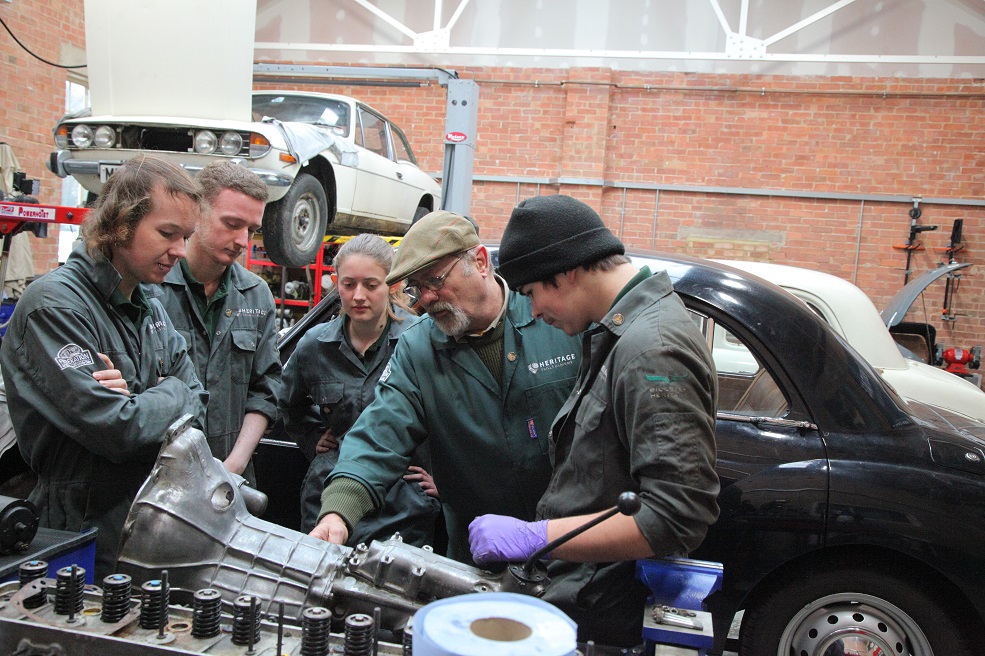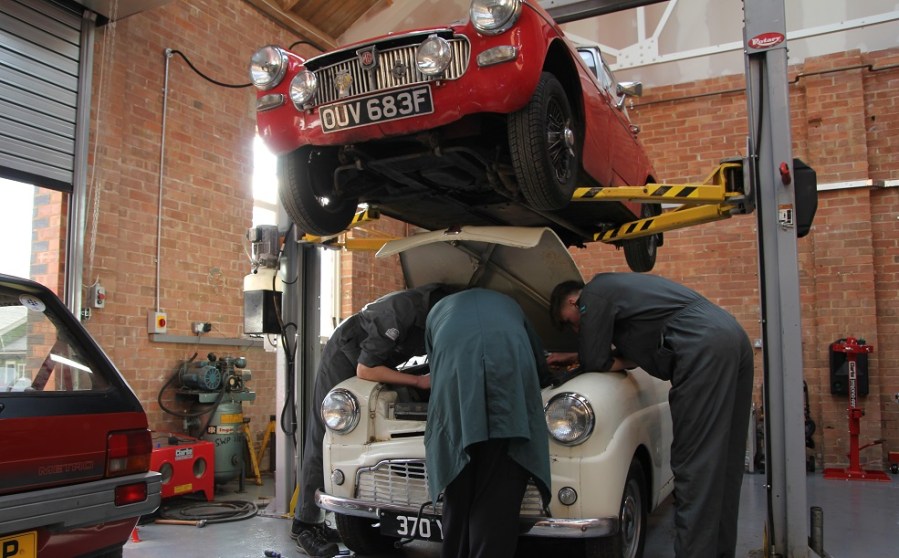Fears that a loss of apprentices amid the Covid-19 pandemic would seriously jeopardise the future of the historic vehicle movement are being replaced by a new sense of optimism as the industry looks to buck the nationwide trend.
The pandemic has decimated numbers across the national apprenticeship landscape. A YouGov poll analysed by The Sutton Trust educational charity has suggested that three-fifths have been furloughed, made redundant or lost access to learning. Its report predicted there would be fewer vacancies in future, revealing that apprenticeship starts are already down by seven per cent in the first half of 2019/20 compared to last year, and expected to drop further.
Initially, the historic vehicle industry looked set to be heavily affected. The Heritage Skills Academy, based at Bicester Heritage, has made significant steps over the past four years to future proof the skills needed within the restoration and heritage industry by offering unique apprenticeship schemes. However, over the past eight weeks many of the classic vehicle specialists it works with have had to furlough staff and mothball workshops like every other industry. Three weeks ago, 70 per cent of the HSA’s employers were closed and 80 per cent of apprentices furloughed – something that could’ve left the prospects of more than 70 HSA apprentices hanging in the balance.
Thankfully, the HSA has been able to show remarkable resilience. Usually, its training is delivered in five-day residential blocks at Bicester every six weeks, of which around 50 per cent is practical work. However, within 72 hours of lockdown it had trained its staff up to use the Zoom system and redesigned its programme to transform all practical tasks to theory. The five-day structure remains, but now all training is delivered remotely.

“The response from apprentices and employers has been outstanding,” explained HSA Managing Director John Pitchforth. “We’re now nine weeks in and we’ve had 100 per cent attendance – that speaks volumes about the quality and relevance of what we do. It also demonstrates the commitment of our apprentices and how much they value their training and the industry they work in.”
There’s plenty more positivity, too. Planning is underway for apprentices to return to onsite training from June 8, with protocols put in place for appropriate social distancing. “With our small class sizes and organised workshops, we feel that this should be feasible and safe for staff and apprentices,” John added. “About half of each group is local enough to visit daily and we’re just looking at the logistics of how we deal with the overnighters. We haven’t got a definitive conclusion on that, but we will have shortly.”
What’s more, 85 per cent of the employers involved are now back trading to some extent, and busy. Some apprentices still on furlough, but only one has been made redundant, and alternative employment is already being sought for that person. Remarkably, 11 new apprentices have joined during March and April, and there are brand new courses too. An old-school Coachbuilding Apprenticeship will begin on June 8, and there will also be evening classes on the welding and the coachbuilding side for private customers.

Pre-pandemic, it had been hoped that the number of apprentices would increase to 140 by the end of 2020. However, while HSA’s Development Director Owain Johns feels it’s realistic to expect that growth to slow a little, there’s still plenty of optimism. “There’s a sense we can’t be as ambitious, but what we’ve heard from employers is that there’s definitely a demand in the heritage sector, and a real interest in making sure we have apprentices with the right skills.
“For apprentices in the service or retail sectors, or hair and beauty for example, you can understand why they’ve been hardest hit. But people here at Bicester Heritage have been busy; they’ve been talking about three-month order book, so they need to invest in the future.”
Certainly, the HSA and its apprentices have provided their resourcefulness, dedication, and adaptability over the last couple of months. Thanks to their efforts, more of the vital skills that underpin our industry stand to be retained and developed.






